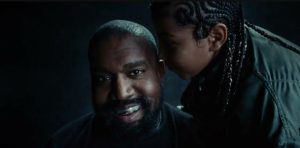Rittenhouse Walks Free
December 6, 2021
18-year-old Kyle Rittenhouse is acquitted on all counts after killing two men and wounding a third during the turbulent aftermath of the Jacob Blake shooting on Aug. 23.
The shooting took place on Aug. 25, 2020, two days after Blake’s death and right in the middle of the initiated unrest in Kenosha, Wisconsin. After being pursued by a group attempting to unarm him, Rittenhouse fired shots and killed the first victim. He then attempted to flee and was being chased by a crowd of a dozen people. He tripped after being hit in the head, then fired another fatal shot at the second victim who attempted to stop him with a skateboard. He also fired a shot at another who had a handgun pointed at him, wounding their right arm. Rittenhouse was arrested for first-degree reckless homicide, endangering safety, and the use of a dangerous weapon.
Among the victims are 36-year-old Joseph Rosenbaum and 26-year-old Anthony Huber who Rittenhouse fatally shot, and 26-year-old Gaige Grosskreutz who is still alive.
Defendants argued that the murders were justified as Rittenhouse was acting in self-defense. Wisconsin does not have a stand-your-ground law, but they do have the castle doctrine, a law that permits the use of deadly force for breaking and entering into private property. Rittenhouse testified that his intentions were to “act as a medic and help protect private property.”
Prosecutors aimed to mark up Rittenhouse as having malicious intent for crossing state lines to patrol the streets with his AR-15 and “hunting” protestors as an act of vigilantism. They argue that Huber hitting Rittenhouse with a skateboard did not warrant Rittenhouse shooting him dead.
On the morning of Nov. 19, 2021, jurors came to the verdict after four days of deliberation for the then-teen Rittenhouse in Kenosha, Wisconsin. During the trial, Rittenhouse bawled relentlessly, causing a 10 minute delay in the court. The next day, Rittenhouse walked free of all charges, including the misdemeanor of owning an assault rifle under the legal age of 18.
The case has become pivotal for the debate on gun regulations, violence, and racial injustice. Outside of the courthouse, many have praised Rittenhouse as a hero of homeland security and order during the aggravated protests. Several conservative speakers defended the actions of Rittenhouse, including former-president Donald Trump, who liked a tweet saying “Kyle Rittenhouse is a good example of why I decided to vote for Trump.”
Meanwhile, others are worried about how precedent will change for future protests, fearing that more will feel protected by law or even inclined to carry guns at future protests. Subsequent cases of similar situations will look at Rittenhouse’s case and use it in future trials.
Liberal speakers also denounce the trial due to bias from the judge who withheld video evidence that condemns Rittenhouse’s intentions leading to the shooting and the claim to self-defense.
Rittenhouse, who possibly faced life in prison, has been wiped clean of all indictments and gets to walk free.






